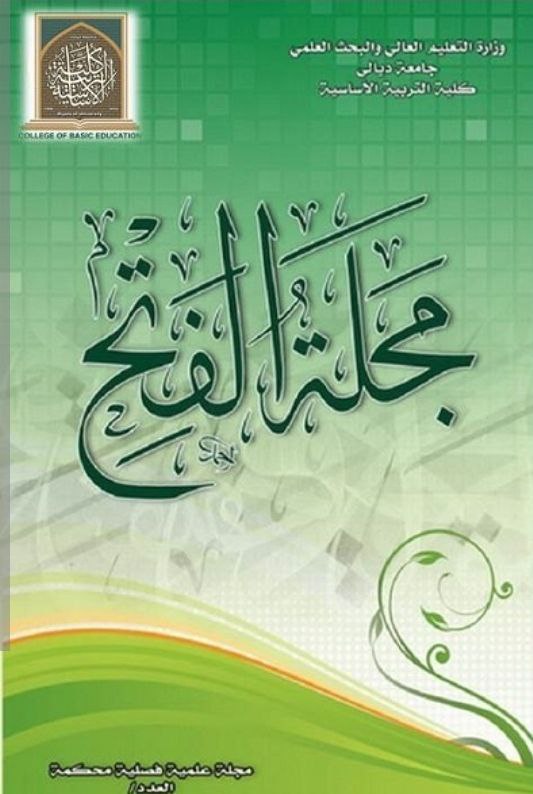Assessing Kurdish College Students' Use of Oxford Language Learning Strategies
DOI:
https://doi.org/10.23813/fa/16/56Keywords:
Oxford learning strategiesAbstract
Abstract :
One can generally presupposes in any foreign language learning domain that success is included in possessing certain learning skills which makes any foreign language acquisition successful, enjoyable and practical in a way that enables the learner to use that language in new communicative situations. Among many models of learning strategies, there is oxford language learning strategies (oxford LLS) .1990, Professor Rebecca L. Oxford (University of North Carolina) developed a learning taxonomy for categorizing learning strategies. The study aims at finding out the impact of this taxonomy on 4th stage students in the Department of English / College of Education / Salahaddin University for the academic year 2015-2016. It will illustrate to what degree learning strategies help academic students to acquire linguistic competences. The sample of the study consists of (30) students which was selected randomly from (164) students that was the total number of the 4th stage students in the department. A survey questionnaire has been used to ask students about their learning experiences, satisfaction with their coursework and assessments of improvement in their academic learning skills. The main advantage of this survey is to find out the impact of oxford LLS on Kurdish 4the Grade Students' Language Learning Strategies in College of Education through testing the following learning strategies:
1-planning for learning,
2-monitoring learning, 3-self‐regulation, 4-memorization, 5-communicative or interactive strategies. The percentage formula was used to analyze students' frequencies of responses to the statement of the questionnaire as this formula is widely used in descriptive statistics.
Key words: Oxford LLS: as they are defined in the Wiki as a term referring to the processes and actions that are consciously deployed by language learners to help them to learn or use a language more effectively.
Learning Strategies: can be defined as learning techniques that are used by group of learners to acquire a linguistic competence successfully and helps them to develop their interaction performance.
References
References
- Chamot, A. And L. Kupper. (1989). “Learning Strategies in Foreign Language Instruction”. Foreign Language Annuals, Vol. 22, No. 1, PP.13-24.
- Chamot, A. and O’Malley, J. M. (1997). “Language Learner and Learning Strategies”. In Ellis. (Eds). Implicit and Explicit Learning of Languages. New York: Academic Press.
- Ellis, R. (2005) instructed Second Language Acquisition: A Literature Review Report to the Ministry of Education, Auckland Un-service Ltd. Newzeland.
- Hafsa Ruba &etl (2014) Strategy Inventory for Language Learning :European Journal of Psychological Reseach,vol.1 , No. 1 ,University of Sargodha, Sargodha, Pakistan
- Lessard – Clouston , Michael (1997). "Language Learning Strategies: An Overview for L2 Teachers" .The Internet TESL Journal, Vol. VI, No. 8, Hacettepe University, Ankara, Turkey.
- Lihua Sun (2013).The Effect of Meta-cognitive Learning Strategies on English Learning, Beijing Information Science & Technology University, Beijing, China .Theory and Practice in Language Studies, Vol. 3, No. 11, pp. 2004-2009, November 2013.
- Ramsden, P (1992). Learning to teach in higher Education. London. Routledge
- Swanson, H. L.(1990) . Influence of metacognitive knowledge and aptitude on problem solving .journal of Educational Psychology, 82, 306-314
- Stern, H. H. (1975): What Can We Learn from the Good Language Learner? The Canadian Modern Language Review, 31(4), 304-318
- Tarone, E.(1981) . Some thoughts on the notion of communication strategy.TESOL quarterly, 15(3), 285-295.
Downloads
Published
How to Cite
Issue
Section
License
Copyright (c) 2016 مجلة الفتح

This work is licensed under a Creative Commons Attribution 4.0 International License.
حقوق النشر والترخيص
تطبق مجلة الفتح للبحوث التربوية والنفسية ترخيص CC BY (ترخيص Creative Commons Attribution 4.0 International). يسمح هذا الترخيص للمؤلفين بالاحتفاظ بملكية حقوق الطبع والنشر لأوراقهم. لكن هذا الترخيص يسمح لأي مستخدم بتنزيل المقالة وطباعتها واستخراجها وإعادة استخدامها وأرشفتها وتوزيعها ، طالما تم منح الائتمان المناسب للمؤلفين ومصدر العمل. يضمن الترخيص أن المقالة ستكون متاحة على نطاق واسع بقدر الإمكان وأن المقالة يمكن تضمينها في أي أرشيف علمي.
لمزيد من المعلومات، يرجى متابعة الرابط: https://creativecommons.org/licenses/by/4.0/.



